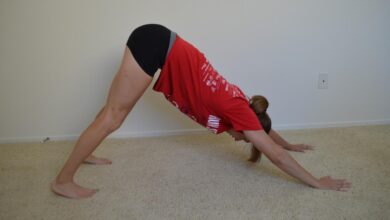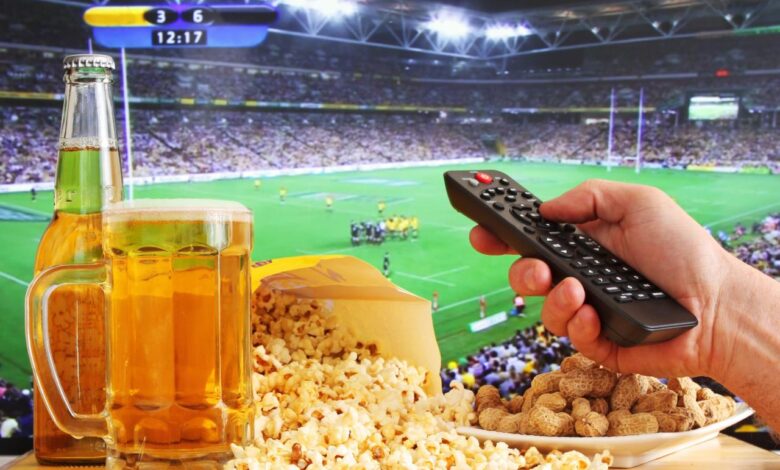
Is Sports Food Junk or Does It Enhance Performance?
Is sport food junk or does it enhance performance – Is sports food junk or does it enhance performance? This question often arises in the minds of athletes and fitness enthusiasts alike. While the allure of convenient, ready-to-eat snacks might seem appealing, the true impact of these foods on athletic performance is a complex topic.
Understanding the nutritional landscape of sports food and its role in fueling the body for optimal performance is crucial for achieving fitness goals and maximizing athletic potential.
The key lies in differentiating between sports food that truly enhances performance and those that simply provide empty calories. Sports foods, designed to provide athletes with the necessary energy, nutrients, and electrolytes, can be a valuable tool for optimizing performance.
However, the line between sports food and junk food can be blurry, and many “sports” snacks are simply disguised junk food. It’s essential to make informed choices, prioritizing nutrient-dense foods that support athletic goals.
The Nutritional Landscape of Sports Food
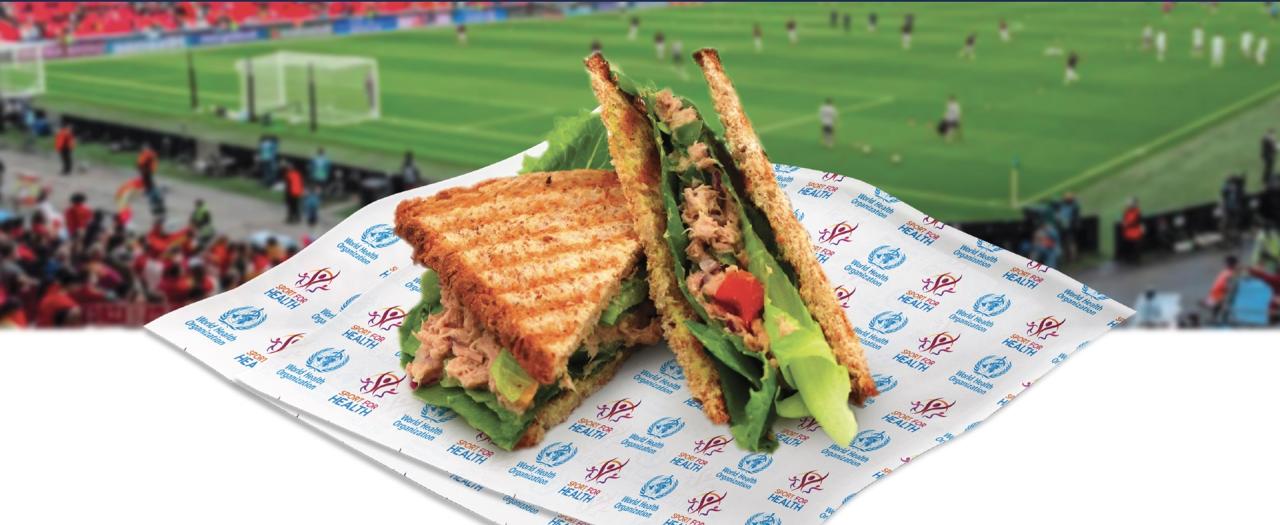
Sports nutrition is a specialized field that focuses on providing athletes with the optimal fuel and nutrients they need to perform at their best. While the general population requires a balanced diet to maintain health, athletes have unique nutritional needs due to the demands of their training and competition.
Essential Nutrients for Athletes
Athletes require a higher intake of essential nutrients compared to the general population to support their increased energy expenditure, muscle growth, and recovery. These essential nutrients include carbohydrates, protein, fats, vitamins, minerals, and water.
Macronutrients and Athletic Performance
Macronutrients provide the energy and building blocks that athletes need to perform at their peak.
Carbohydrates
Carbohydrates are the primary source of energy for the body, especially during intense exercise. They are broken down into glucose, which is used by muscles for fuel.
Athletes should consume 6-10 grams of carbohydrates per kilogram of body weight daily.
Whether sports food is junk or performance-enhancing is a debate that often revolves around how we fuel our bodies for activity. To truly optimize your workout routine, consider incorporating strength training with the best TRX exercises for beginners.
These exercises can build lean muscle mass, which in turn, helps burn more calories at rest, even when you’re not actively exercising. This can make a real difference in how your body processes the food you consume, ensuring that your fuel is used effectively for both performance and recovery.
Protein
Protein is essential for muscle growth and repair, as well as the production of enzymes and hormones.
Athletes should consume 1.2-1.7 grams of protein per kilogram of body weight daily.
Fats
Fats provide energy and help the body absorb vitamins. They also play a role in hormone production and cell function.
Athletes should consume 20-30% of their daily calories from healthy fats.
Sports Foods and their Macronutrient Content
Sports foods are designed to provide athletes with the specific nutrients they need to support their training and performance.
Carbohydrate-rich Sports Foods
- Sports drinks: These drinks provide carbohydrates and electrolytes to help athletes stay hydrated and replenish energy during exercise.
- Energy gels: These concentrated gels provide a quick source of carbohydrates for athletes during long endurance events.
- Energy bars: These bars offer a combination of carbohydrates, protein, and fats, providing a sustained energy release.
Protein-rich Sports Foods
- Protein shakes: These shakes are a convenient way to increase protein intake after exercise to support muscle recovery.
- Protein bars: These bars provide a combination of protein and carbohydrates, making them a good choice for a post-workout snack.
- Greek yogurt: This high-protein dairy product is a good source of calcium and other essential nutrients.
Fat-rich Sports Foods
- Nuts and seeds: These healthy fats provide sustained energy and are a good source of vitamins and minerals.
- Avocados: This fruit is rich in healthy fats, fiber, and potassium.
- Olive oil: This healthy fat is a good source of antioxidants and can help improve heart health.
Performance Enhancement vs. Junk Food: Is Sport Food Junk Or Does It Enhance Performance
While both sports foods and junk food can provide calories, their impact on athletic performance is vastly different. Sports foods are designed to fuel and support athletic endeavors, while junk food, though often appealing, can hinder performance and even be detrimental to health.
Impact on Athletic Performance
Sports foods are formulated to provide the specific nutrients athletes need to optimize performance. These foods are often high in carbohydrates for energy, protein for muscle repair and growth, and electrolytes for hydration. Junk food, on the other hand, is typically high in saturated fat, sugar, and sodium, which can lead to a spike in blood sugar followed by a crash, leaving athletes feeling sluggish and unable to perform at their best.
Key Performance Factors
- Energy Levels:Sports foods provide sustained energy release, keeping athletes fueled for extended periods. Carbohydrates are the primary energy source for muscles, and sports foods often contain complex carbohydrates that are digested slowly, providing a steady stream of energy. Junk food, with its high sugar content, provides a quick burst of energy followed by a crash, leaving athletes feeling depleted.
- Muscle Recovery:Protein is crucial for muscle repair and growth after exercise. Sports foods often contain high-quality protein sources that aid in muscle recovery and help athletes rebuild muscle tissue. Junk food, lacking in protein, fails to provide the necessary building blocks for muscle repair, potentially leading to delayed recovery and increased risk of injury.
- Endurance:Sports foods can help athletes maintain endurance by providing sustained energy and aiding in hydration. Electrolytes, which are lost through sweat, are essential for maintaining fluid balance and preventing cramping. Junk food, often lacking in electrolytes and hydrating properties, can lead to dehydration and muscle cramps, significantly impacting endurance.
Specific Nutrient Impact
- Carbohydrates:Sports foods typically contain complex carbohydrates, such as those found in whole grains, fruits, and vegetables. These carbohydrates are digested slowly, providing sustained energy for prolonged exercise. Junk food, on the other hand, often contains simple sugars, which are quickly absorbed and lead to a rapid spike in blood sugar, followed by a crash.
- Protein:Sports foods are often enriched with protein to support muscle repair and growth. Protein is essential for athletes, as it helps them rebuild muscle tissue after strenuous activity. Junk food is typically low in protein, making it less effective for muscle recovery.
- Electrolytes:Electrolytes, such as sodium, potassium, and magnesium, are crucial for maintaining hydration and preventing muscle cramps. Sports foods often contain electrolytes to help athletes stay hydrated during intense training and competition. Junk food, generally lacking in electrolytes, can contribute to dehydration and muscle fatigue.
The Role of Timing and Consumption
The timing of your food intake plays a crucial role in how your body utilizes nutrients and fuels your workouts. Optimizing your nutrition timing can significantly enhance your performance and recovery.
Pre-Workout Nutrition
Consuming the right foods before a workout can provide your body with the energy it needs to perform at its best. A pre-workout meal should be light and easily digestible, providing a steady release of energy throughout your workout.
We all know that sports nutrition is a big deal, but is that protein bar really giving you an edge, or just a sugar rush? The truth is, many sports foods are packed with processed ingredients, like corn, which isn’t as wholesome as it seems.
To understand the real impact of these foods, you need to dig deeper, and the truth about corn might surprise you. Knowing the hidden ingredients in our food can help us make smarter choices about what fuels our bodies, whether we’re training for a marathon or just trying to stay healthy.
Carbohydrates are the primary fuel source for moderate to high-intensity exercise.
A balanced pre-workout meal should include a mix of carbohydrates and some protein. * Carbohydrates:Complex carbohydrates, like whole grains and sweet potatoes, provide sustained energy release.
Protein Protein helps build and repair muscle tissue, supporting muscle growth and recovery.
During-Workout Nutrition
During long and intense workouts, your body may require additional fuel to maintain energy levels. Consuming carbohydrates during exercise can help prevent fatigue and improve performance.
Sports drinks can provide a quick source of carbohydrates and electrolytes, which are lost through sweat.
* Sports drinks:These beverages can be beneficial during prolonged exercise, particularly in hot and humid conditions.
Energy gels or chews These are convenient sources of carbohydrates that can be easily consumed during exercise.
Post-Workout Nutrition
Post-workout nutrition is crucial for muscle recovery and replenishing energy stores. Consuming a balanced meal or snack after exercise helps your body repair muscle tissue and prepare for your next workout.
Consuming a combination of carbohydrates and protein after exercise is optimal for muscle recovery.
* Carbohydrates:Help replenish glycogen stores, which are depleted during exercise.
Protein Promotes muscle protein synthesis, aiding in muscle repair and growth.
Sample Meal Plan for an Athlete
Here is a sample meal plan for an athlete, highlighting the timing of each meal: Pre-Workout (1-2 hours before exercise):* Breakfast (7:00 AM):Oatmeal with berries and nuts, a glass of milk. During-Workout (every 45-60 minutes during long workouts):* Sports drink:A sports drink containing carbohydrates and electrolytes. Post-Workout (within 30-60 minutes after exercise):* Lunch (1:00 PM):Grilled chicken breast with brown rice and a side salad.
It’s a common debate: is “sports food” just junk food disguised as fuel, or does it actually enhance performance? While some sports nutrition can be helpful, it’s important to remember that sustainable weight loss, which is key for optimal athletic performance, comes from healthy lifestyle changes, not quick fixes.
Check out this article on 4 sustainable ways to lose weight without fad diets for a more balanced approach to your health and fitness goals. Ultimately, the best “sports food” is the one that aligns with your overall health and helps you achieve your athletic goals in a sustainable way.
Snack (3:00 PM):* Greek yogurt with fruit and granola.Dinner (7:00 PM):* Salmon with roasted vegetables and a whole-grain roll.
Potential Negative Effects of Consuming Junk Food Before, During, or After Exercise
Consuming junk food before, during, or after exercise can have negative effects on your performance and overall health. * Junk food is often high in calories, saturated fat, and sugar.This can lead to weight gain, increased risk of chronic diseases, and decreased athletic performance.
- Junk food is low in essential nutrients.This can lead to deficiencies in vitamins, minerals, and fiber, which are important for optimal health and athletic performance.
- Junk food can cause digestive issues.The high fat and sugar content in junk food can lead to bloating, gas, and indigestion, which can negatively impact your workout.
The Impact of Junk Food on Athletic Performance
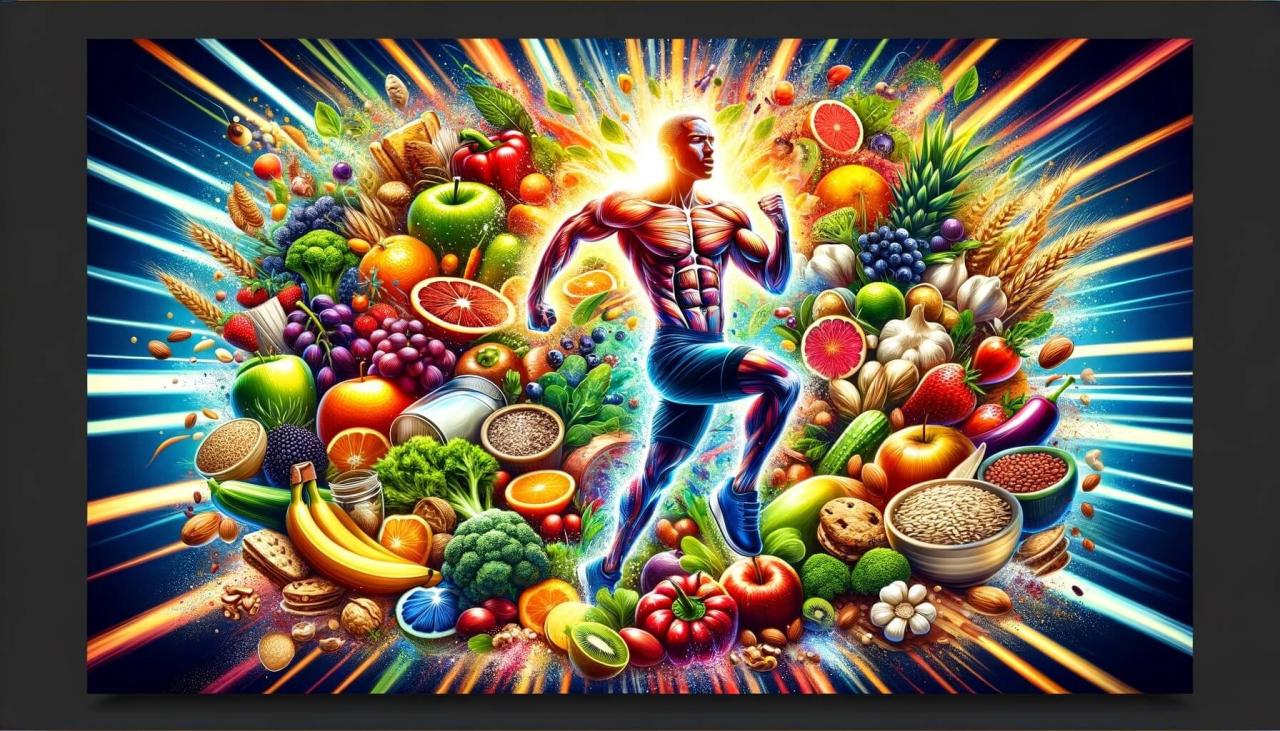
While it may seem tempting to indulge in junk food after a grueling workout, the reality is that these processed, nutrient-poor choices can significantly hinder your athletic performance and overall well-being. Junk food is packed with empty calories, unhealthy fats, and added sugars that offer minimal nutritional value, leading to a cascade of negative effects on your body.
Decreased Energy Levels and Muscle Fatigue, Is sport food junk or does it enhance performance
Junk food’s high sugar content provides a quick energy surge, followed by a rapid crash, leaving you feeling drained and sluggish. This energy rollercoaster disrupts your body’s ability to sustain energy levels throughout training sessions or competitions. Additionally, the lack of essential nutrients like protein and complex carbohydrates hinders muscle recovery and repair, contributing to fatigue and decreased performance.
Dehydration and Its Impact on Performance
Junk food often contains high levels of sodium, which can lead to dehydration. Dehydration significantly impacts athletic performance, as it can lead to:
- Reduced blood flow and oxygen delivery to muscles.
- Increased heart rate and body temperature.
- Decreased muscle strength and endurance.
- Impaired cognitive function and decision-making.
Long-Term Health Consequences
A diet primarily based on junk food can lead to serious long-term health consequences for athletes, including:
- Increased risk of chronic diseases such as heart disease, type 2 diabetes, and certain types of cancer.
- Impaired immune function, making athletes more susceptible to illness and injury.
- Compromised bone health due to the lack of calcium and vitamin D.
- Negative impacts on mental health and mood, as junk food can lead to mood swings and difficulty concentrating.
Closing Summary
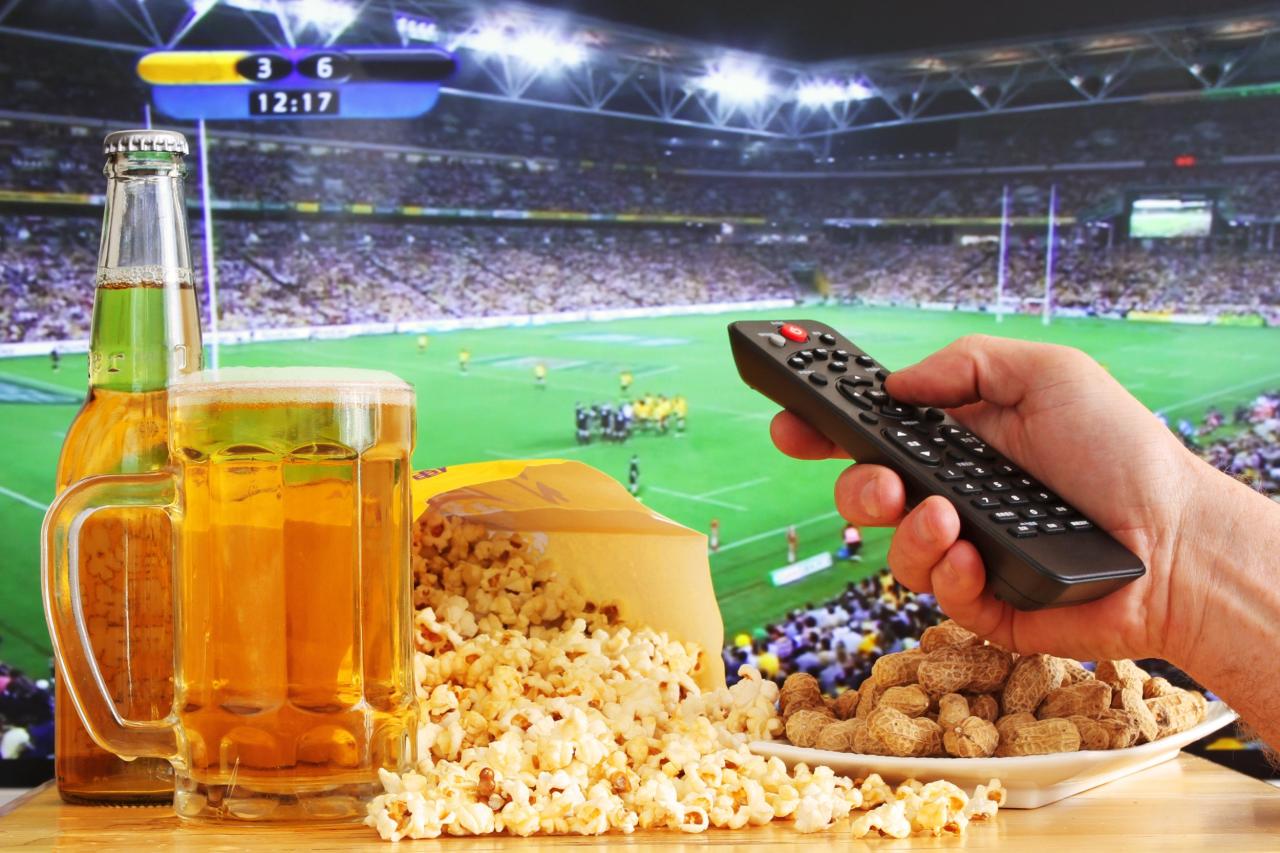
Ultimately, the choice between sports food and junk food comes down to a conscious decision about fueling your body for optimal performance. By understanding the science behind sports nutrition, making informed choices about what we consume, and seeking professional guidance when needed, we can ensure that our food choices support our athletic goals and contribute to a healthier, more fulfilling lifestyle.
So, the next time you’re faced with a sports food decision, remember to prioritize your health and performance by choosing wisely.



